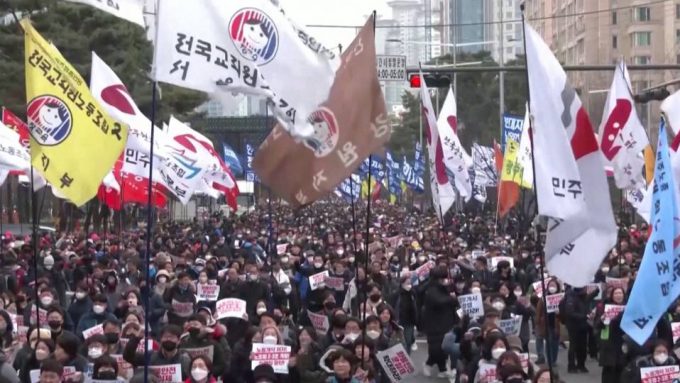Air traffic controllers' walkout closes Belgian airspace tomorrow
Strike-related airspace closure in Belgium means all flights will be cancelled at Liege and Brussels ...

South Korean container shipping companies will temporarily reduce demurrage and detention charges incurred as a result of delayed transport to and from ports due to the truckers’ strike.
The Korea Shipowners’ Association (KSA) announced yesterday it had met with the Korea International Trade Association and Korea Federation of SMEs, and at their request agreed to get its members to cut D&D charges to support shippers.
KSA vice-chairman Kim Young-moo said the shipping companies would consult with the shippers over the extent of ...
Maersk u-turn as port congestion increases across Northern Europe
Apple logistics chief Gal Dayan quits to join forwarding group
Maersk Air Cargo sees volumes fall as it aims for 'margin in favour of revenue'
Houthis tell Trump they will end attacks on Red Sea shipping
Transpac rates hold firm as capacity is diverted to Asia-Europe lanes
Airlines slash freighter capacity post-de minimis, but 'the worst is yet to come'
MSC revamps east-west network as alliance strategies on blanking vary
India-Pakistan 'tit-for-tat' cargo ban sparks sudden supply chain shocks


Comment on this article